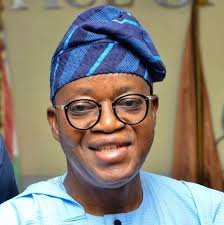The Federal Government is ramping up efforts to eliminate Nigeria’s dependence on imported fish by aggressively scaling up local production, according to Marine and Blue Economy Minister, Adegboyega Oyetola.
Speaking at a high-level consultative session with fisheries cooperatives in Abuja on Wednesday, Oyetola said the administration is determined to reposition the fisheries and aquaculture sector through a mix of policy reforms, targeted technical support, and improved financial access.
“We will scale up local fish production and chart a new course toward self-sufficiency,” the minister declared, signaling a shift toward sustainable domestic production to plug Nigeria’s fish supply deficit.
Stakeholder Engagement at the Core
The meeting, convened by the Federal Ministry of Marine and Blue Economy, brought together leading sector groups including the Fisheries Cooperative Federation of Nigeria (FCFN), Tilapia Aquaculture Developers Association of Nigeria (TADAN), Catfish Farmers Association of Nigeria (CAFAN), Women in Fish Farming and Aquaculture, and the Practicing Farmers Association of Nigeria.
Oyetola reiterated the Ministry’s commitment to inclusivity, stressing that youth and women will be central to the renewed drive for aquaculture growth. He noted that start-up grants and empowerment schemes were in development, in line with President Tinubu’s “Renewed Hope” agenda focused on youth engagement and economic diversification.
Sectoral Challenges
Stakeholders highlighted several longstanding constraints in the sector—ranging from overfishing and environmental degradation to chronic post-harvest losses, inadequate cold chain infrastructure, poor market access, and high input costs, especially for imported fish feed. Multiple taxation by local governments and limited financing options were also flagged as structural bottlenecks.
In response, Oyetola revealed that the Ministry is in talks with the World Bank for financing support to fish farmers, while also working with the Nigerian Agricultural Insurance Corporation (NAIC) to roll out sector-specific insurance products. He added that the Federal Ministry of Water Resources is partnering to replicate successful aquaculture projects—such as the Oyan Dam model—in other parts of the country.
Towards a Sustainable Blue Economy
“This is not the end, but the start of a transformative dialogue,” Oyetola said, describing the meeting as the foundation for a long-term collaborative roadmap aimed at boosting domestic production and reducing Nigeria’s multi-billion-naira fish import bill.
According to WorldFish, Nigeria spends about US $1 billion annually on fish imports, which accounts for 45% of domestic fish supply despite only producing roughly 1.2 million tonnes locally
As Africa’s largest fish consumer with one of the continent’s largest aquaculture potentials, Nigeria’s push for self-reliance in fish production could be a major win for food security, rural livelihoods, and the broader blue economy.

